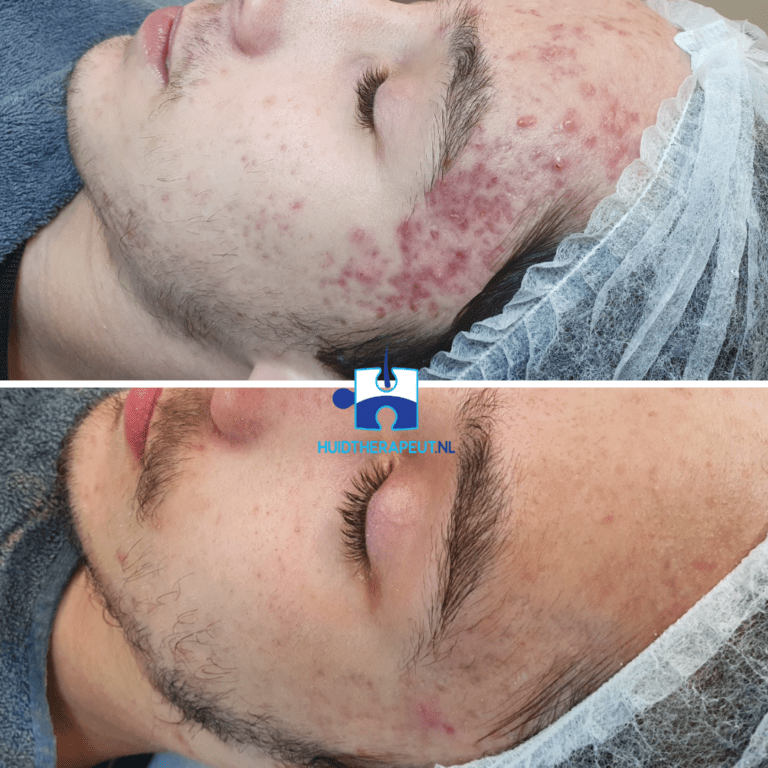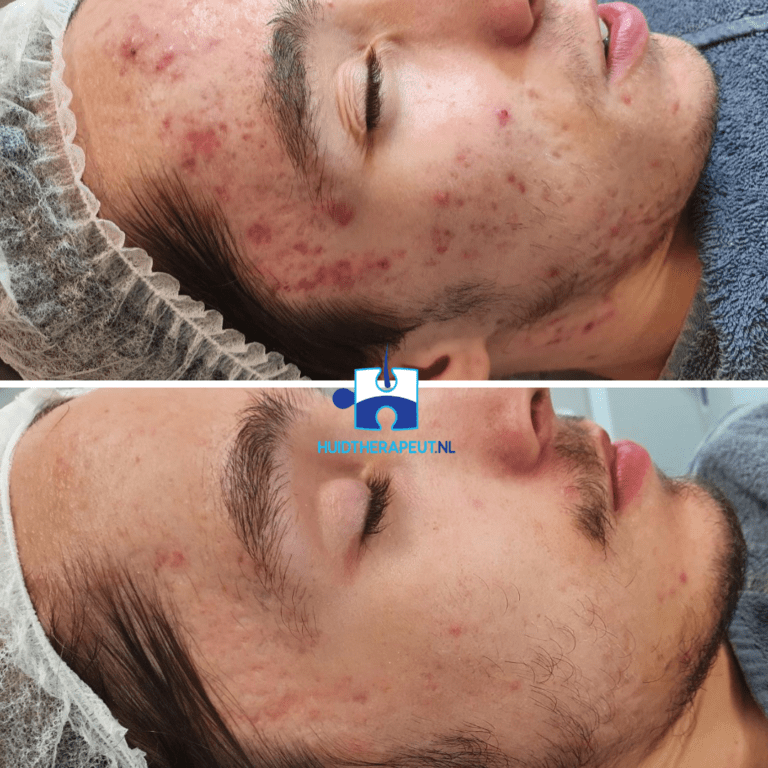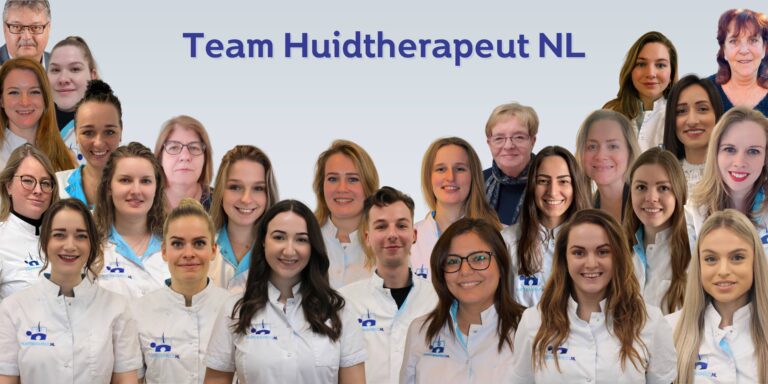What is acne?
Acne vulgaris is the medical term for childhood pimples. Acne occurs in 85% of people between 12 and 24 years old. After the teenage years, the presence of acne decreases sharply to about 5%. In women, acne is more common in adulthood than in men. It is a condition with a relatively large impact on the quality of life.
What are the causes of acne?
The exact cause of acne is not yet fully known. It is clear that acne is caused by a combination of factors that can strongly influence each other. The main four factors are:
- Increased sebum production
- Changes in the cornification process (peeling of the skin)
- Presence of bacteria
- The release of substances that cause inflammation
Various factors can aggravate acne, such as hormonal processes, external mechanical and chemical factors and hereditary factors. Various medicines can also lead to acne. In addition, foods with a high sugar content (“fast” sugars) and milk products can aggravate acne. The relationship with smoking and poor hygiene has so far never been well established.
Different types of acne
- Acne vulgaris:
Vulgaris is Latin for ordinary. It is therefore by far the most common form of acne. It can show all the typical features of acne, usually in a fairly mild form. - Acne conglobata:
In acne conglobata, very severe inflammation of the sebaceous glands are in the foreground. This leads to thick red and painful bumps (infiltrates), which are usually located on the back. (Young men are especially likely to develop this form of acne). - Acne fulminans:
This very intense (fortunately rare) form of acne starts very suddenly. The skin abnormalities are very similar to those of the acne conglobata. The difference with acne conglobata is mainly that the patient is also ill. General malaise, weight loss and joint and muscle pains can occur. - Acne infantum:
Acne infantum or baby acne is actually an outsider in the “acne family”. It is quite common for newborn babies to have small acne pimples on the face. This happens under the influence of hormones (androsterone, testosterone, etc.). The symptoms are almost always mild and disappear by themselves. - Acne ectopica (hidradenitis suppurativa):
This is also an outsider in the acne family. The abnormalities occur in the groin and armpits.
How can you treat acne?
There is no standard treatment for acne. When the inflammatory symptoms are in the foreground, the treatment is different than when it is mainly blackheads. The severity of the condition, the complaints, the occurrence of scar formation, but also age and gender determine which anti-acne agent will be started. As mentioned earlier, acne is caused by various factors.
Il terapista cura tutti i tipi di acne e cicatrici da acne. Ciò accade spesso in combinazione con il trattamento da parte di un medico. Sotto la voce trattamento dell’acne troverai tutte le informazioni sulle nostre opzioni di trattamento per l’acne.
In addition to our treatment options, there are various means to tackle one or more causes. The doctor or dermatologist can prescribe the following anti-acne agents:
- Means that prevent the increased cornification of the discharge passage:
keratolytics, such as benzoyl peroxide, tretinoin and adapalene - Agents that prevent the growth of bacteria:
antibacterial agents such as benzoyl peroxide, antibiotics (local or systemic) - Anti-inflammatory drugs:
anti-inflammatory drugs such as antibiotics - Means that reduce sebum formation:
like the pill, isotretinoin (roaccutane)
Treatment results
Reimbursement by health insurers
Acne therapy is (partially) reimbursed by most insurance companies. Ask your skin therapist for advice if you are unsure whether a certain treatment is reimbursed.





